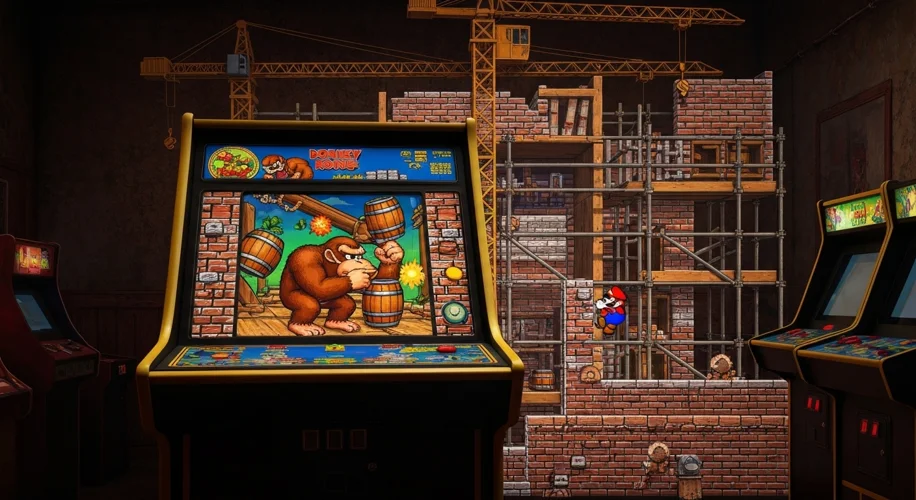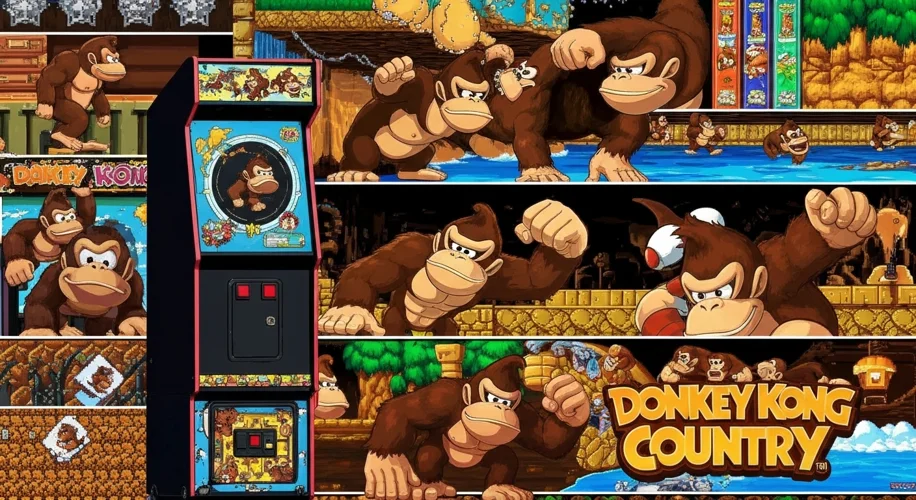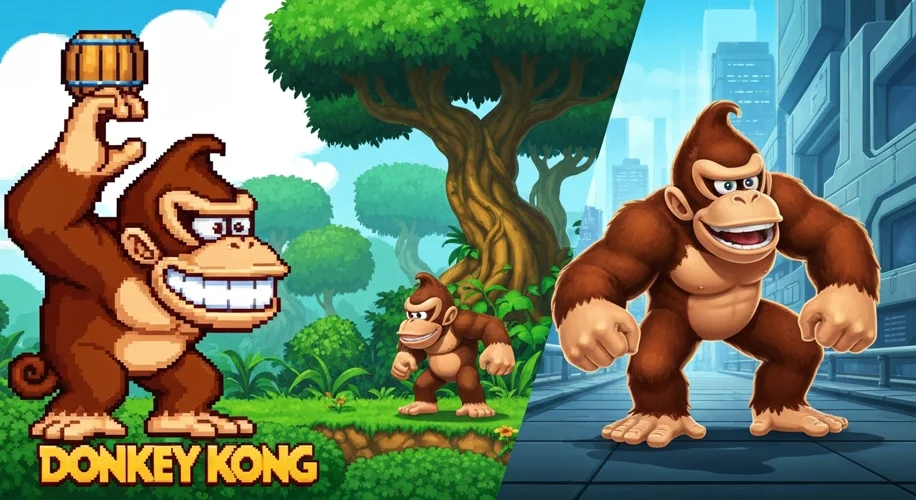In the annals of video game history, few characters have leaped off the screen and into the global consciousness quite like Donkey Kong. This barrel-throwing simian, a titan of the early arcade era, is more than just a digital ape; he is a cultural touchstone, a progenitor of a gaming dynasty, and a testament to the enduring power of simple, addictive gameplay.
The story of Donkey Kong’s genesis is as fascinating as the game itself. In the early 1980s, Japan’s burgeoning video game industry was dominated by space shooters and sports simulations. Nintendo, a company with a diverse history spanning playing cards to toys, was looking for a breakthrough in the lucrative North American arcade market. Their previous attempt, a port of Radar Scope, had been a commercial disaster, leaving their warehouses filled with unsold cabinets.
Facing mounting debt and the specter of failure, Nintendo of America turned to their ambitious young designer, Shigeru Miyamoto. Tasked with creating a game that would capture the attention of American players, Miyamoto drew inspiration from a variety of sources, including the popular King Kong films and the burgeoning trend of maze-chase games like Pac-Man. However, he infused his creation with a unique narrative: a damsel in distress, a villainous ape, and a heroic carpenter.
The resulting game, released in 1981, was nothing short of revolutionary. Players controlled Mario (then known as Jumpman), a carpenter tasked with rescuing his girlfriend, Pauline, from the titular Donkey Kong. The gameplay was a novel blend of platforming and puzzle-solving, requiring players to navigate intricate levels, jump over obstacles, and dodge rolling barrels.  The iconic imagery of Donkey Kong perched atop a steel structure, hurling projectiles down upon the determined plumber, became an instant classic.
The iconic imagery of Donkey Kong perched atop a steel structure, hurling projectiles down upon the determined plumber, became an instant classic.
Donkey Kong’s success was immediate and overwhelming. It revitalized Nintendo’s fortunes and single-handedly launched the platformer genre into the mainstream. The game’s innovative design, challenging difficulty, and memorable characters resonated with players worldwide, turning arcades into bustling hubs of digital entertainment. It was a cultural phenomenon, spawning countless imitators, merchandise, and even a hit song.
But Donkey Kong’s impact didn’t end with the arcade. The character and his world continued to evolve, with Donkey Kong Jr. in 1982 introducing a new protagonist and storyline. The character’s true resurgence, however, came with the Nintendo Entertainment System (NES) and the introduction of Donkey Kong Country in 1994. This visually stunning game, developed by Rare, reinvented Donkey Kong as a heroic jungle protector, showcasing groundbreaking pre-rendered 3D graphics that captivated a new generation of players.
The Donkey Kong Country series became a flagship franchise for Nintendo, spawning numerous sequels and spin-offs. It solidified Donkey Kong’s place in popular culture, expanding his narrative to include his simian family and the vibrant Kongo Jungle. From the rhythmic bongo beats of its soundtrack to the challenging level design, the Donkey Kong Country games offered a distinct and beloved gaming experience that continues to be celebrated.
The cultural legacy of Donkey Kong is undeniable. He is a character who has bridged generations, from the pixelated days of the arcade to the high-definition era of modern consoles. His adventures have inspired countless game designers, influenced the evolution of platformer mechanics, and provided millions with hours of entertainment and nostalgic memories.  More than just a video game character, Donkey Kong is a symbol of innovation, resilience, and the sheer joy of play. He stands as a testament to how a simple idea, brought to life with creativity and passion, can leave an indelible mark on the world.
More than just a video game character, Donkey Kong is a symbol of innovation, resilience, and the sheer joy of play. He stands as a testament to how a simple idea, brought to life with creativity and passion, can leave an indelible mark on the world.
The enduring appeal of Donkey Kong lies in his adaptability. Nintendo has consistently found new ways to present the character and his world, ensuring his relevance across different eras and gaming platforms. Whether he’s starring in a kart racer, a puzzle game, or a jungle-themed adventure, Donkey Kong remains a beloved and recognizable figure, a true icon of the digital age.

